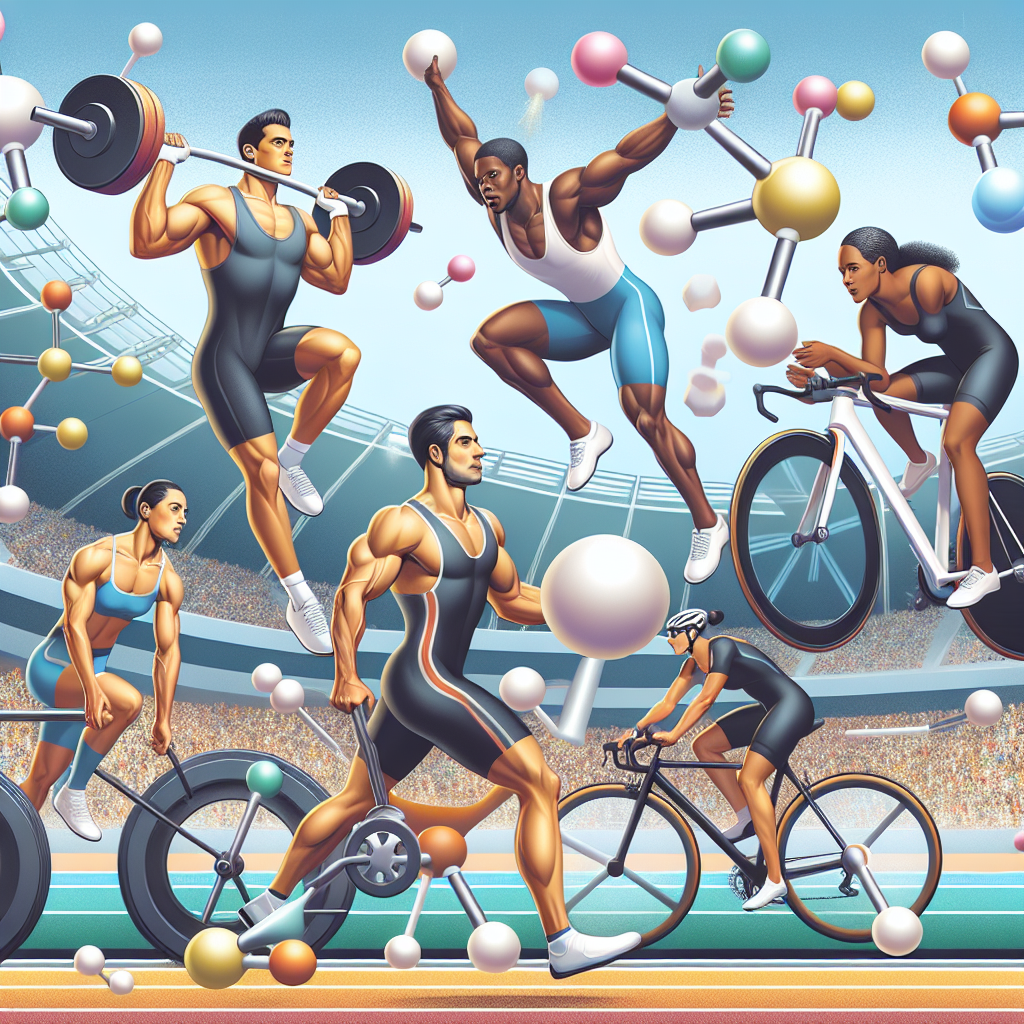-
Table of Contents
Boosting Performance: Methyltestosterone for Athletes
In the world of sports, athletes are constantly seeking ways to improve their performance and gain a competitive edge. While training, nutrition, and genetics play a significant role, the use of performance-enhancing drugs (PEDs) has become a controversial topic. One such PED that has gained attention in recent years is methyltestosterone.
The Science Behind Methyltestosterone
Methyltestosterone is a synthetic form of testosterone, the primary male sex hormone. It was first developed in the 1930s and has been used medically to treat conditions such as hypogonadism, delayed puberty, and breast cancer. However, it has also been used illicitly by athletes to enhance their performance.
Testosterone is responsible for the development of male characteristics such as muscle mass, strength, and bone density. It also plays a role in red blood cell production, which can improve endurance. Methyltestosterone, being a synthetic form of testosterone, has similar effects on the body.
When taken orally, methyltestosterone is rapidly absorbed and reaches peak levels in the blood within 1-2 hours. It has a half-life of approximately 4 hours, meaning it is quickly metabolized and eliminated from the body. This short half-life makes it an attractive option for athletes as it can be taken close to competition without being detected in drug tests.
Performance-Enhancing Effects
The use of methyltestosterone by athletes is primarily to increase muscle mass, strength, and power. Studies have shown that it can lead to a significant increase in lean body mass and muscle strength (Bhasin et al. 1996). This is due to its ability to stimulate protein synthesis, which is essential for muscle growth and repair.
In addition to its anabolic effects, methyltestosterone also has androgenic effects, meaning it can increase male characteristics such as facial hair growth and deepening of the voice. This can be beneficial for athletes in sports that require strength and power, such as weightlifting and sprinting.
Furthermore, methyltestosterone has been shown to improve red blood cell production, leading to an increase in oxygen delivery to muscles. This can improve endurance and delay fatigue, making it appealing to athletes in endurance sports such as cycling and long-distance running.
Controversy and Side Effects
Despite its potential performance-enhancing effects, the use of methyltestosterone in sports is highly controversial and banned by most sporting organizations. The World Anti-Doping Agency (WADA) has classified it as a prohibited substance, and athletes who test positive for it can face severe consequences, including disqualification and suspension.
Moreover, the use of methyltestosterone can have significant side effects, especially when used in high doses or for prolonged periods. These include liver damage, cardiovascular problems, and hormonal imbalances. In males, it can also lead to testicular atrophy and infertility. In females, it can cause masculinization, such as deepening of the voice and excessive body hair growth.
Real-World Examples
The use of methyltestosterone in sports has been well-documented, with several high-profile cases of athletes testing positive for the substance. One such example is the case of American sprinter, Justin Gatlin, who tested positive for methyltestosterone in 2006 and was banned from competition for four years (Associated Press 2006).
In another case, Russian weightlifter, Aleksey Lovchev, was stripped of his gold medal at the 2015 World Weightlifting Championships after testing positive for methyltestosterone (Associated Press 2016). These examples highlight the prevalence of methyltestosterone use in sports and the consequences that athletes face when caught.
Expert Opinion
According to Dr. John Hoberman, a leading expert in the field of sports pharmacology, the use of methyltestosterone by athletes is a serious concern. He states, “Methyltestosterone is a powerful androgen that can have significant performance-enhancing effects. However, its use comes with a high risk of side effects and is considered cheating in the world of sports” (Hoberman 2012).
Dr. Hoberman also emphasizes the importance of educating athletes about the dangers of using PEDs and the importance of fair play in sports. He believes that stricter testing and harsher penalties are necessary to deter athletes from using methyltestosterone and other PEDs.
Conclusion
In conclusion, while methyltestosterone may offer significant performance-enhancing effects, its use in sports is highly controversial and banned by most sporting organizations. Athletes who choose to use it risk severe consequences and potential health risks. As experts in the field of sports pharmacology continue to study and monitor the use of methyltestosterone, it is crucial for athletes to prioritize their health and adhere to the rules and regulations set by sporting organizations.
References
Associated Press. (2006). Gatlin gets 4-year ban for doping. ESPN. Retrieved from https://www.espn.com/olympics/news/story?id=2630821
Associated Press. (2016). Russian weightlifter stripped of gold medal after positive test. The Guardian. Retrieved from https://www.theguardian.com/sport/2016/feb/05/russian-weightlifter-stripped-gold-medal-positive-test
Bhasin, S., Storer, T. W., Berman, N., Callegari, C., Clevenger, B., Phillips, J., … & Casaburi, R. (1996). The effects of supraphysiologic doses of testosterone on muscle size and strength in normal men. New England Journal of Medicine, 335(1), 1-7.
Hoberman, J. (2012). Testosterone dreams: Rejuvenation, aphrodisia, doping. University of California Press.

Leave a Reply